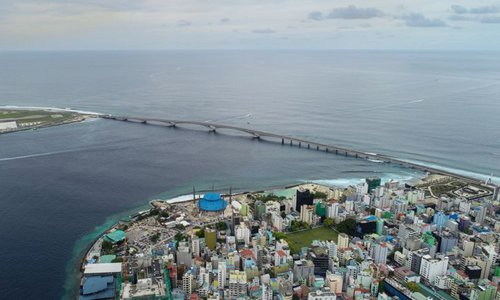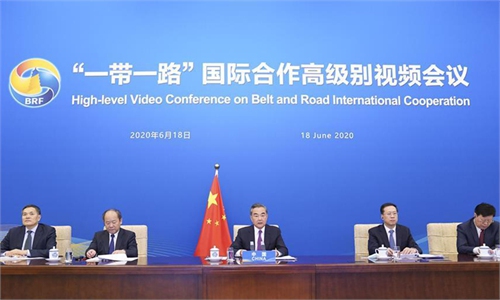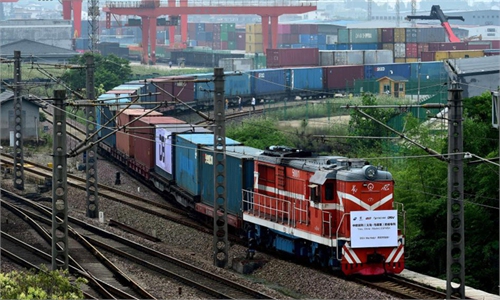BRI shouldn't be the geopolitical motivation behind India's overseas infrastructure plan
BRI shouldn't be the geopolitical motivation behind India's overseas plan

Aerial photo taken on Aug. 28, 2019 shows the China-Maldives Friendship Bridge in the Maldives. Photo: Xinhua
India recently announced a $500 million package to fund a connectivity project in the Maldives, which plans to link Male to several other islands and is expected to become the largest civilian infrastructure project in the country, according to media reports.
Some Indian media outlets and netizens saw the development as the latest move by the Indian government to counter the influence of China's Belt and Road Initiative (BRI) in the Maldives, a region China has been aiming to build trade and transport links in during recent years. With an investment of $200 million, the China-Maldives Friendship Bridge, a cross-sea bridge inaugurated on August 30, 2018, is an iconic project built by a Chinese company under the BRI program.
To a certain extent, such an interpretation is understandable and justified. Given the financial difficulty India faces under the strain of coronavirus, geopolitical factors are likely to play a role in its move to undertake large-scale infrastructure projects overseas. China's increasing economic presence in the Indian Ocean island nation may have aroused vigilance in India, explaining its eagerness to strengthen diplomatic and economic relations in a region of strategic geopolitical importance. Still, this is no bad thing for the Maldives' economy, which could benefit greatly from the infrastructure projects.
India has long been reluctant to join the China-led BRI, and has appeared anxious about the growing influence of the grand infrastructure connectivity program. But if India pursues a strategy countering China's influence by offering infrastructure support and funding to promote development in its neighboring countries, even if it's geopolitically motivated, it will still benefit the region as a whole by boosting local employment and economy.
Even from China's perspective, India's increased participation in regional infrastructure projects should be welcomed and seen as a good thing for the BRI program. This is because the BRI is not an exclusive scheme, nor is it motivated by geopolitical rivalry. China's push for the BRI projects is aimed at improving people's livelihoods and promoting regional economic development through better infrastructure conditions along the BRI route. Thus, any willingness and interest by other countries to fund and implement infrastructure projects needs to be encouraged.
There is no need to over-interpret political implications by comparing BRI projects to non-BRI ones, which is ultimately misleading and doesn't bring any substantial benefits.
The author is a reporter with the Global Times. bizopinion@globaltimes.com.cn




